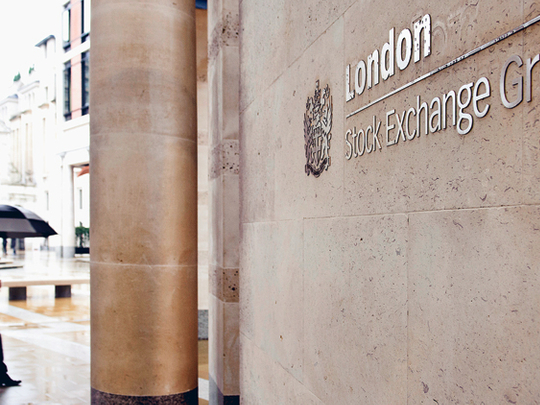
London: European shares rose modestly yesterday, lifted by gains in banking stocks, but concerns over Greece's large debt burden remained, keeping the euro on the back foot against the dollar.
The boost to banks came as British lender Lloyds Banking Group said it would swing back to profit this year after two years of heavy losses, helped by lower bad debts and tight cost controls.
"There are no particular dangers out there that are going to spoil the party. The unexpected and very positive trading statement from Lloyds ... was terrifically encouraging," said David Buik, senior partner at BGC.
The MSCI world equity index was up 0.2 per cent, while in Europe the FTSEurofirst 300 index rose 0.3 per cent, tracking rises in the US and Asia.
"I don't think the [equity] market is due for a particular correction because the dividends have been reasonable and nobody wants to buy the bond market if they think yields are going to go up," Buik said.
Some volatility may be expected in the market, however, due to ‘quadruple witching' — the expiration of US stock index futures, stock index options, stock options and individual stock futures — later yesterday.
Bund futures were steady while emerging stocks rose 0.1 per cent.
Worries over Greece and doubts over whether euro zone states will agree any form of support package still weighed on sentiment, keeping the euro weak and hampering peripheral debt.
The euro was down 0.1 per cent against the dollar at $1.3592, while increased risk aversion helped flows into the US currency. The dollar rose 0.3 per cent against a basket of major currencies to 80.323.
"Greece is not off the radar yet. It will continue to dominate headlines, and weigh on the euro," said Sverre Holbek, currency strategist at Danske in Copenhagen.
Investors were concerned it could prove extremely difficult to construct a euro zone financial safety net for the currency area's most heavily indebted member, partly due to German reluctance. The premium investors demand to buy 10-year Greek government bonds rather than core German Bunds continued to rise, with the 10-year Greek/German government bond yield spread widening to 324 basis points (bps) from 318 bps at Thursday's settlement.











